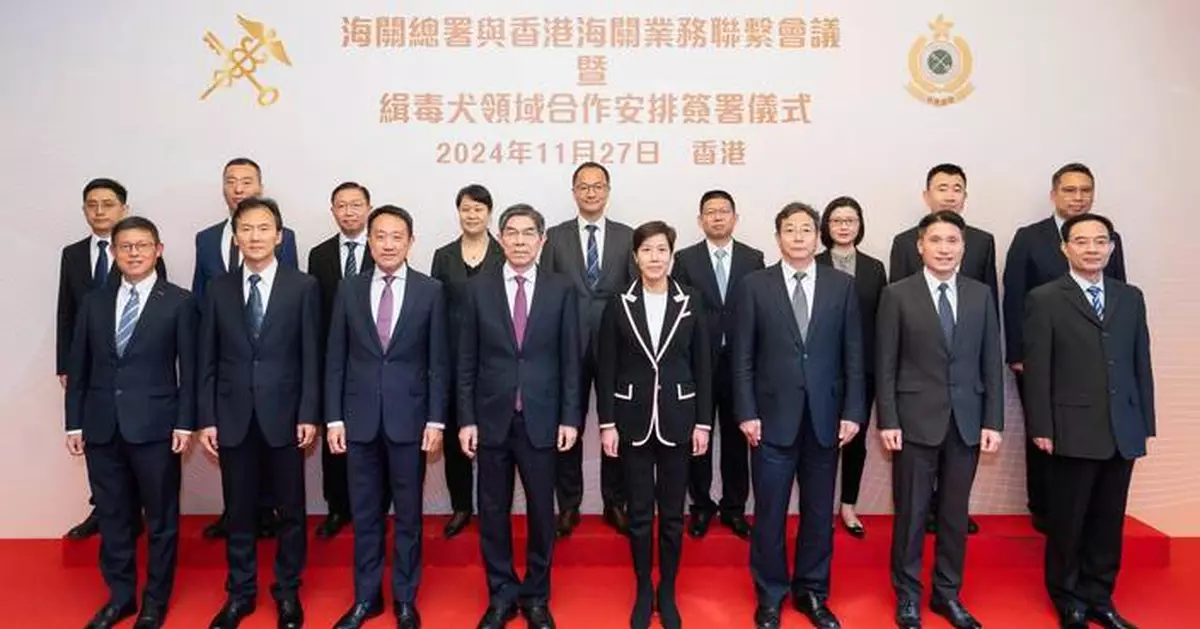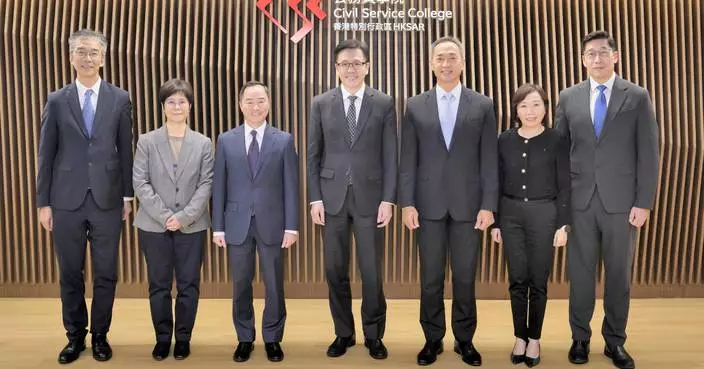Hong Kong Customs and General Administration of Customs of People's Republic of China hold review meeting and strengthen co-operation on drug detector dogs
The 2024 Review Meeting between Hong Kong Customs and the General Administration of Customs of the People's Republic of China (GACC) was held in Hong Kong today (November 27). The Hong Kong Customs delegation was headed by the Commissioner of Customs and Excise, Ms Louise Ho, while the Mainland Customs delegation was headed by the Vice-Minister of the GACC, Mr Wang Lingjun.
Ms Ho welcomed Mr Wang's visit to Hong Kong Customs with his delegation, and chaired the meeting. During the meeting, the two Customs administrations reviewed the co-operation over the past two years and recognised the remarkable achievements yielded from close co-operation on various fronts. The two sides also reached consensus on the 2025-2026 Co-operation Plan. The salient points of the Co-operation Plan are:
(1) to actively promote high-quality development of the Guangdong-Hong Kong-Macao Greater Bay Area (GBA);
(2) to accelerate co-operation in the construction of Smart Customs;
(3) to continuously deepen co-operation in risk management and law enforcement;
(4) to deepen co-operation in multilateral and international Customs affairs, promoting vital principles of "Smart Customs, Smart Borders and Smart Connectivity Initiative", and enhancing co-operation and exchanges under the framework of the World Customs Organization; and
(5) to strengthen co-operation in exchanges and training.
During the meeting, the two sides also discussed the setting up of the Working Group on Developing Low-altitude Economy as announced in the 2024 Policy Address by the Chief Executive to formulate development strategies and interdepartmental action plans. To foster the development of the GBA low-altitude cross-boundary corridor and promote an interface with the Mainland to facilitate cross-boundary low-altitude flying activities within the GBA, the two sides agreed after discussion to enhance communication at the technical level.
After the meeting, both sides signed a co-operative arrangement on areas of drug detector dogs. The signing of the arrangement further enhanced the exchange and co-operation between the two administrations in the field of drug detector dogs, paving the way for technical exchanges and sharing of scientific research results in the field and joint promotion of the intelligent and informative management of drug detector dogs.
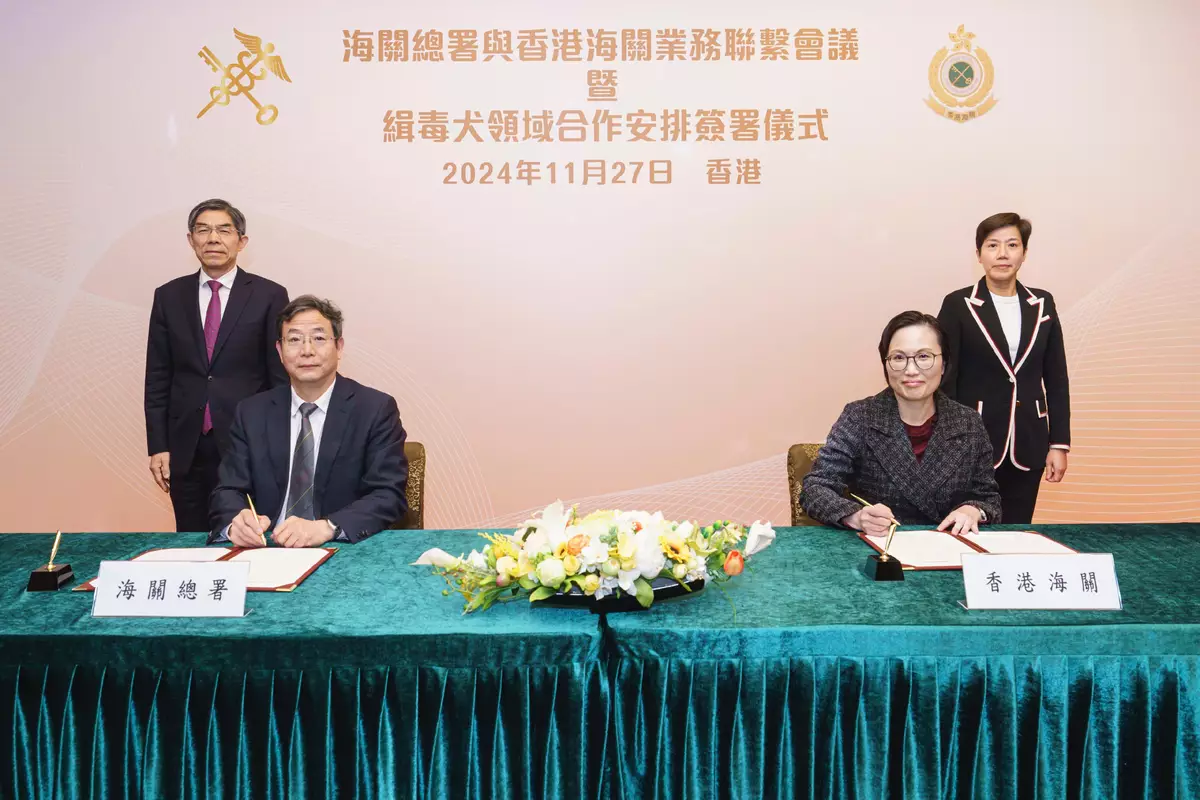
Hong Kong Customs and General Administration of Customs of People's Republic of China hold review meeting and strengthen co-operation on drug detector dogs Source: HKSAR Government Press Releases
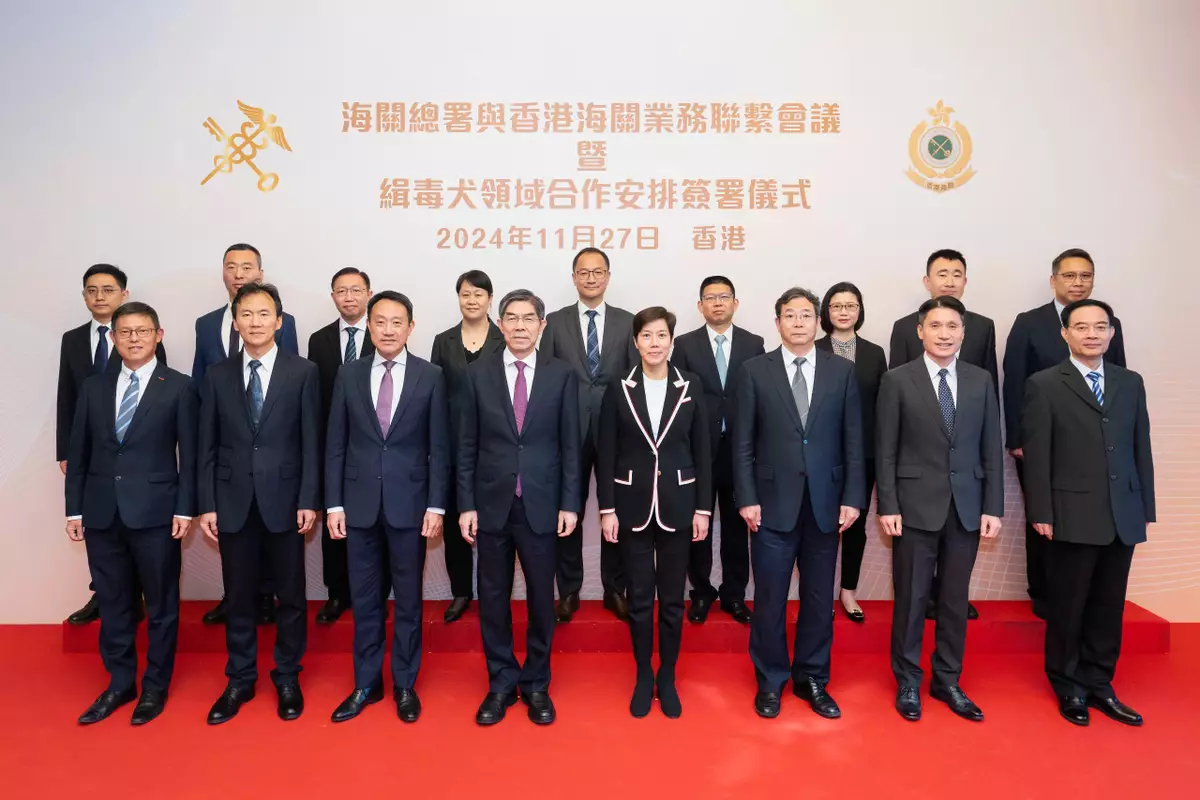
Hong Kong Customs and General Administration of Customs of People's Republic of China hold review meeting and strengthen co-operation on drug detector dogs Source: HKSAR Government Press Releases
Exercise "Amazonite" enhances Government's response to human case of avian influenza
The Centre for Health Protection (CHP) of the Department of Health (DH), in collaboration with relevant government departments, today (November 27) conducted a public health exercise, code-named "Amazonite", to enhance its response capabilities in dealing with a human case of avian influenza infection, and to strengthen the execution and co-ordination abilities of the DH and relevant departments in response to a human case of avian influenza, in order to enhance awareness among stakeholders on the handling of public health emergencies.
The exercise consisted of two parts. The ground movement exercise today was held at the Cheung Sha Wan Temporary Wholesale Poultry Market. Under the exercise simulation, the CHP had received a notification from the Hospital Authority (HA) about a woman with avian influenza A (H5N1) virus infection, and commenced epidemiological investigations immediately. The investigations revealed that the patient was a chicken stallholder at a wet market. The CHP co-ordinated with relevant departments to conduct on-site investigations and risk assessment, and implement control measures at the patient's residential building, the market where she worked, the wholesale poultry market, and related chicken farms. The ground movement exercise tested the capability of the CHP and relevant departments to carry out investigation and control measures, which included contact tracing and prescription of prophylactic antiviral therapy; chicken, environmental and sewage sampling; culling of chickens and disinfecting environmental. Approximately 30 personnel from four government departments participated in this ground movement exercise, along with over 30 experts from the Mainland, Macao and Singapore health authorities, who were invited to attend as observers.
The expert observers also attended the exercise briefing held at the CHP in the morning before the ground movement exercise, and visited the Lai Wan Market in the afternoon after the ground movement exercise to learn about the design features of new-style poultry stalls in the market.
The first part of the exercise, conducted on November 7, was a table-top exercise in which four relevant government departments and the HA discussed and co-ordinated the response measures required in a simulated scenario when a local human case of avian influenza A (H5N1) was reported in Hong Kong.
"This exercise provided a valuable opportunity for relevant government departments and the HA to test the response capabilities of stakeholders in the handling of a human case of avian influenza. The DH has held 30 similar exercises in the past, simulating the situation with cases such as measles, plague, Middle East Respiratory Syndrome and Ebola virus disease to enhance the community and healthcare personnel's awareness of possible epidemics, and keep them alert and prepared," the spokesman for the CHP said.
Avian influenza is caused by influenza A viruses that mainly affect birds and poultry, such as chickens or ducks. Some avian influenza viruses can infect and spread to other animals, such as mammals, as well. Humans mainly become infected with avian influenza virus through direct contact with infected animals or contaminated environments.
"According to the World Health Organization (WHO) and health authorities outside Hong Kong, as of November 2024, more than 900 human cases of avian influenza A (H5N1) have been reported worldwide. So far this year, an increasing number of related cases were reported globally than previous years, with most of them reported from the United States. Locally, avian influenza is one of the statutory notifiable infectious diseases in Hong Kong. Since 1997, a total of 22 human cases of avian influenza A (H5N1) have been recorded in Hong Kong, among which seven had died. The most recent case was recorded in 2012. Although there is no evidence of genetic mutations in the avian influenza A (H5N1) virus that are associated with increased infectivity among people, the WHO has indicated that the global mortality rate of human cases of avian influenza A (H5N1) in the past 20 years has exceeded 50 per cent. We shall stay vigilant and get prepared to prevent and combat the disease," the spokesman said.
For more information on avian influenza, the public may visit the CHP's thematic page on avian influenza.
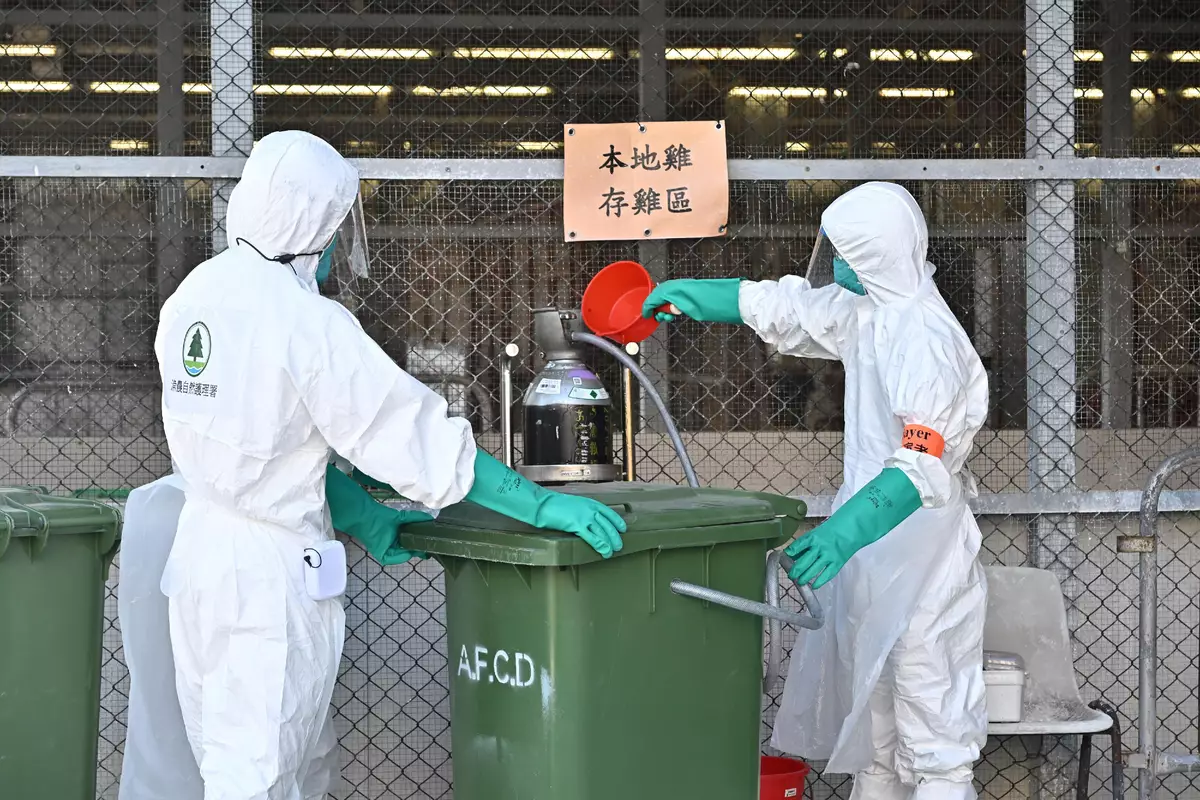
Exercise "Amazonite" enhances Government's response to human case of avian influenza Source: HKSAR Government Press Releases
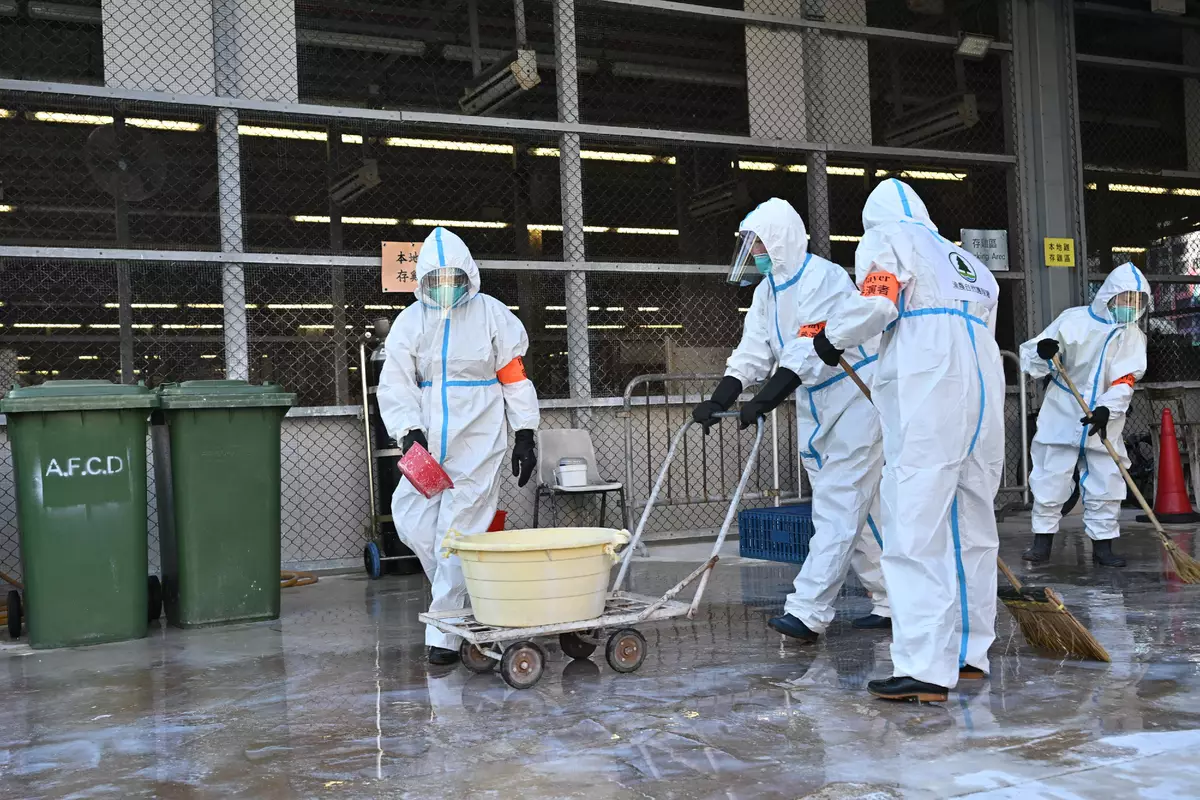
Exercise "Amazonite" enhances Government's response to human case of avian influenza Source: HKSAR Government Press Releases
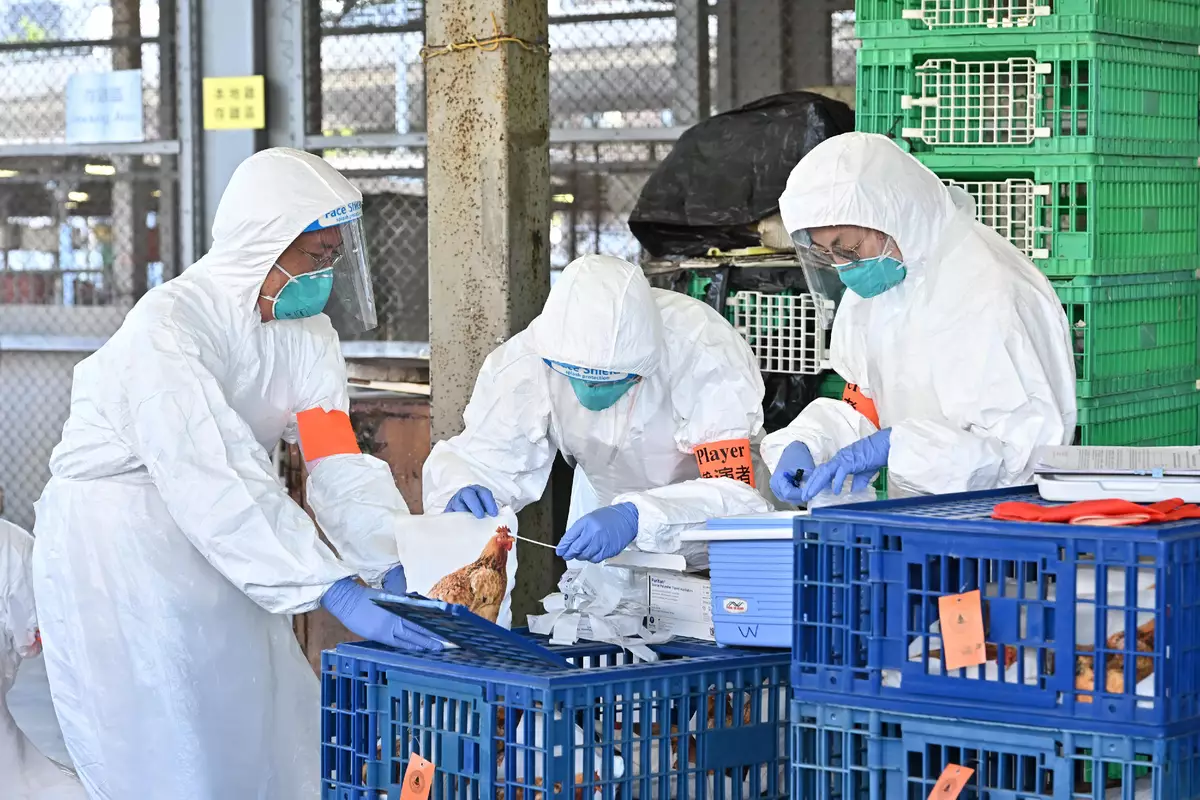
Exercise "Amazonite" enhances Government's response to human case of avian influenza Source: HKSAR Government Press Releases
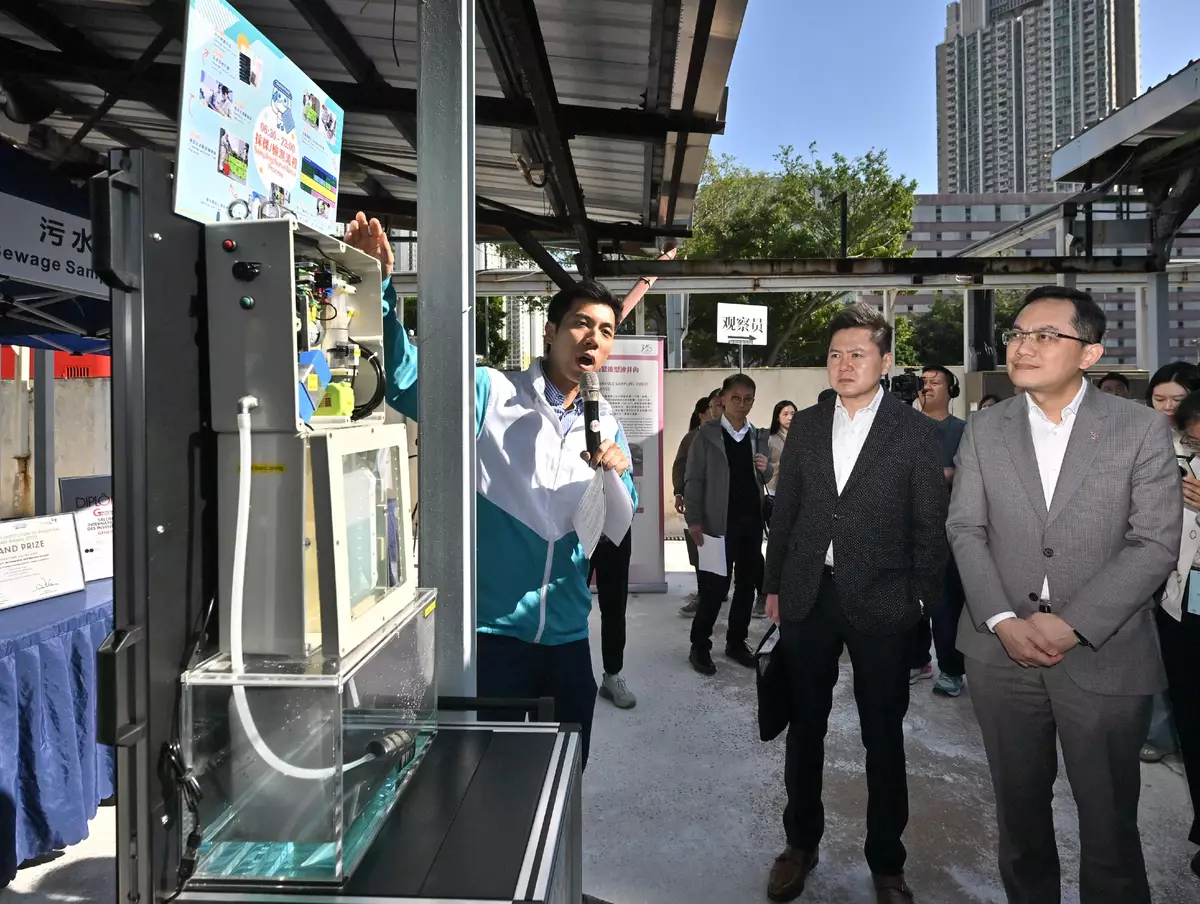
Exercise "Amazonite" enhances Government's response to human case of avian influenza Source: HKSAR Government Press Releases
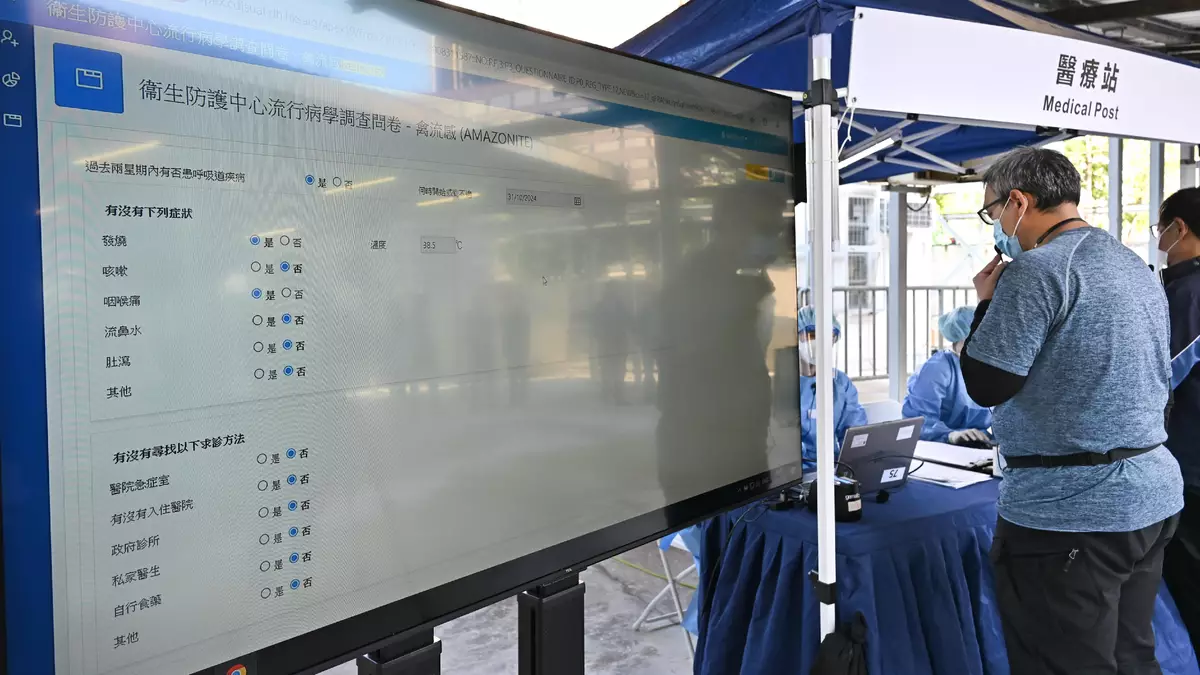
Exercise "Amazonite" enhances Government's response to human case of avian influenza Source: HKSAR Government Press Releases
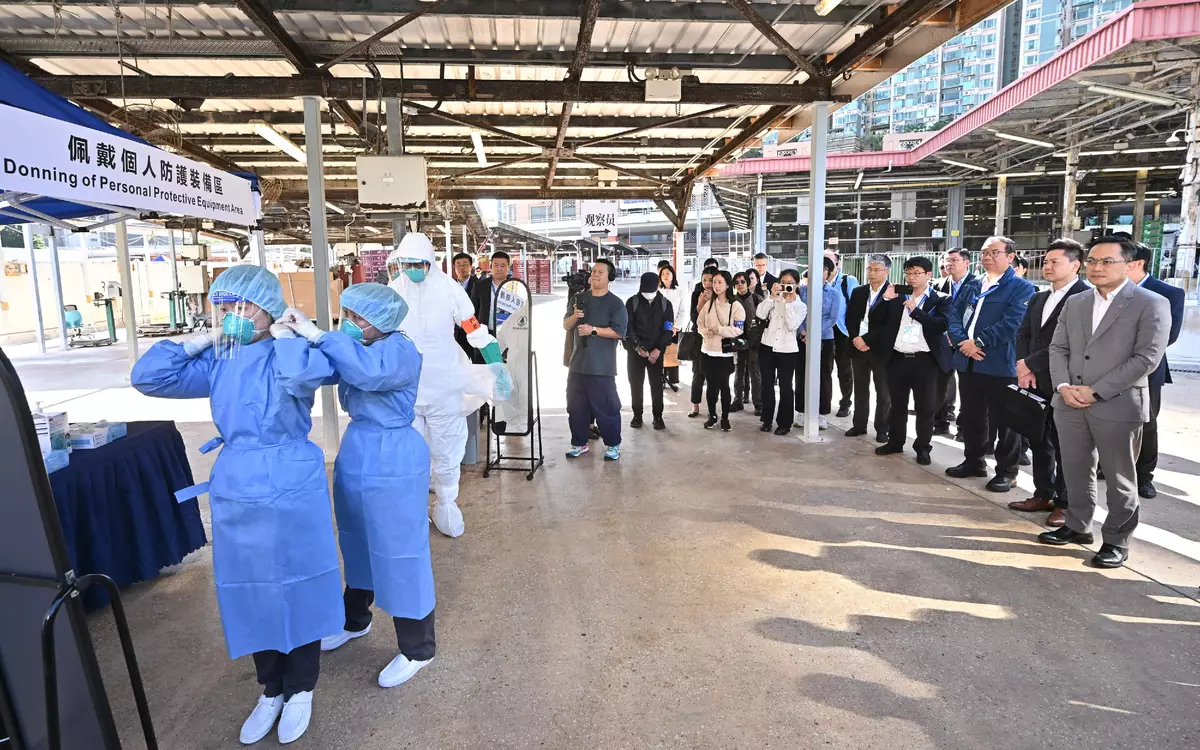
Exercise "Amazonite" enhances Government's response to human case of avian influenza Source: HKSAR Government Press Releases




